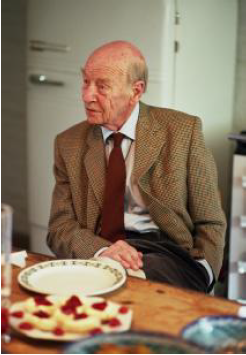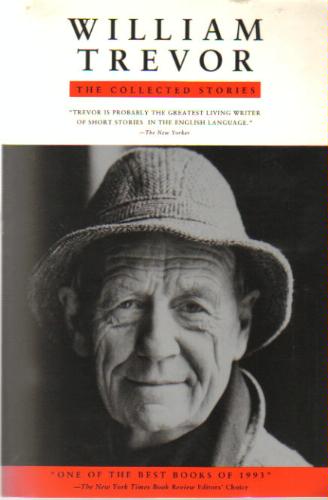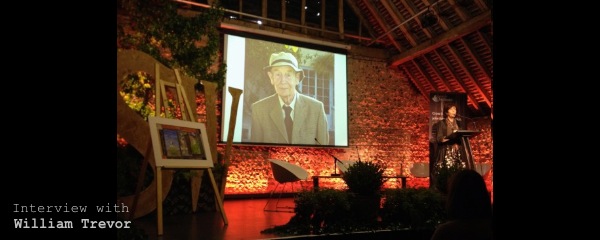photo from Adam Marek
An exclusive interview with William Trevor,
the recipient of the inaugural Charleston-Chichester Award
for a Lifetime’s Excellence in Short Fiction
~
A collaboration with the 2013 INTERNATIONAL
SMALL WONDER SHORT STORY FESTIVAL
~
 In this interview, William Trevor talks with Diana Reich, Small Wonder’s Artistic Director, about the Award, his Irish roots, a curiosity in human behaviour, and crafting both short stories and sculptures. Interviews with Trevor are rare and so we are especially delighted to bring you this wonderful recording.
In this interview, William Trevor talks with Diana Reich, Small Wonder’s Artistic Director, about the Award, his Irish roots, a curiosity in human behaviour, and crafting both short stories and sculptures. Interviews with Trevor are rare and so we are especially delighted to bring you this wonderful recording.
William Trevor was born in Mitchelstown, County Cork in 1928. He has published fourteen novels, including The Old Boys, The Children of Dynmouth, Felicia’s Journey, The Story of Lucy Gault, and Love and Summer, as well as twelve collections of short stories and two novellas. He has won many illustrious prizes and received an Honorary Knighthood in 2002. He has lived in the West of England for many years.
~
Listen to the
Interview with William Trevor
(17 minutes)
~
The Charleston-Chichester Award is the first to recognise long-standing creativity and achievement in writing short stories.
William Trevor says:
“This is an award for what I do best, which is to write short stories. I also write novels but short stories are what I love and have always loved. I’m hugely honoured. It does mean a great deal to me. It has come from the right source. If I were to associate myself forever with the short story, this is the way I would like to do it.”
Diana Reich, Award Administrator, says:
“William Trevor is widely regarded as one of the greatest contemporary practitioners of the art of the short story in the English Language, a master exponent of the tragedy of manners. He has been a lodestar for generations of short story writers, both national and international, who have followed him. He was the unanimous choice as the first recipient of the new Award.”
Alison MacLeod, Professor of Contemporary Fiction, University of Chichester, says:
“It is a huge honour to be able to celebrate nearly fifty years of short fiction from a writer who describes himself as “a short-story writer who happens to write novels”. William Trevor is, without doubt, one of our most extraordinary writers. His vision of the lives of others is as sharp as it is compassionate; as sensitive as it is wry. How lucky we are.”
 Alistair Burtenshaw, Director of Charleston, says:
Alistair Burtenshaw, Director of Charleston, says:
“It is fitting that Charleston, home to Small Wonder, and the University of Chichester have come together as two of the world’s most important centres of excellence in the short story form to create the global award for a lifetime’s achievement in short form literature. As the Small Wonder Short Story Festival celebrates its 10th anniversary, we look forward to recognising one of the most important international practitioners of this vital, re-emergent genre.”
Dr Sarah Gilroy, Deputy Vice-Chancellor University of Chichester, says:
“We are delighted to build upon our long-standing partnership with Charleston and the Small Wonder Festival by creating this literary award celebrating the vibrant discipline of short story writing.”
William Trevor’s long time editor at Penguin, Tony Lacey, says:
“In recent years, William Trevor has alternated publishing collections of short stories with full-length novels. As a novelist his subject is sometimes regarded as the fate of the Irish Protestants in the country during the War of Independence and the Civil War, and the Irish state that followed, and that is indeed a potent theme in some of his most famous books: The Story of Lucy Gault and The Silence in the Garden, for example. But these are not Big House novels, with the drama – or melodrama – that that phrase implies. They are understated and elegiac, concerned with character as much as plot.
“In this sense they reflect his short stories, a genre which Trevor has championed for many years: his Collected Stories, published in two volumes in 2009, amount to almost 2,000 pages. There can be no living writer who has dedicated himself to the genre with such devotion over such a long writing life. The stories are set in Ireland and America, England and Italy, in cities and small towns, but wherever they are set they exhibit a particularly deep sympathy for the downcast, the downtrodden and the downhearted. One thinks of the younger son left behind to run the farm after his siblings have left for richer lives abroad; or the husband, whose wife is suffering from dementia, sitting in their favourite restaurant wondering why a couple are wasting their time bickering; or the old priest wrongly accused of abuse.
“Many of these stories are so perfect that they challenge analysis or criticism. They seem to come perfectly formed. And, perhaps the true test of a great short story, it seems as though they could only exist in that form: they’re not fragments of a novel, buds that might burgeon into something else, but perfect works of art in their own right.”
